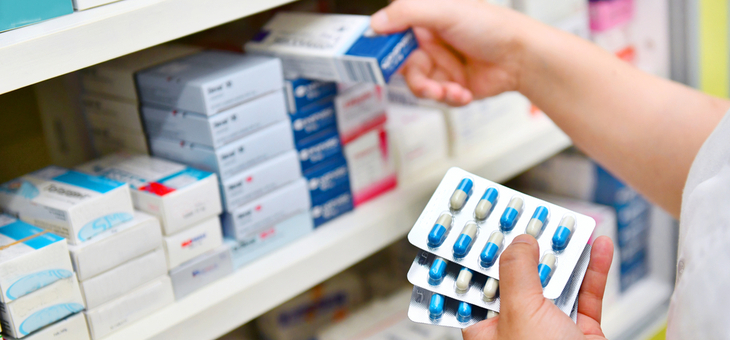Thousands of Australians are set to reap big savings when dozens of new products are added to the Pharmaceutical Benefits Scheme (PBS) today.
The new listings will mean cheaper medicines for 500,000 Aussies, in some cases saving more than $100,000 per patient, according to the Federal Government.
The products include treatments for lung cancer, leukaemia, seizures, nerve pain and high cholesterol levels.
“Some of our most unwell Australians, many battling cancer, will receive a significant boost in the fight for their health,” Prime Minister Scott Morrison said.
The new listings include two treatments for Australia’s most common form of lung cancer, non-small cell lung cancer.
Lung cancer patients have been paying more than $11,400 a script, with a course of treatment requiring about 16 scripts. The drugs will now cost $40.30 a script, or just $6.50 for patients with a concession card, according to AAP.
The same discounts will apply to scripts for treatments for lymphoblastic and acute leukaemia, and chemotherapy-related nausea.
The treatments for lymphoblastic and acute leukaemia had cost more than $44,500 a script and $74,900 a script respectively.
Nausea drugs had cost patients $80 a script.
Fifteen medicines for the treatment of high cholesterol, seizures and nerve pain will also be subsidised.
Australian Medical Association president Tony Bartone has welcomed the new listings.
“But obviously there are always going to be more drugs, more medications, that need to be funded and brought back to the system,” he said.
Professor Stephen Clarke, from the Northern Cancer Institute, described the listing of the lung cancer treatments as a win for patients and clinicians, helping close the treatment access gap.
“We are still seeing unacceptable differences in lung cancer survival rates depending on postcode,” Prof. Clarke said.
Labor health spokesman Chris Bowen said 60 drugs recommended by the Pharmaceutical Benefits Advisory Committee were still waiting to be added to the PBS.
“Out-of-pocket costs have never been higher, and hospital waiting lists have never been longer than under the Morrison government,” Mr Bowen said.
The medicines were recommended to the PBS by the independent expert Pharmaceutical Benefits Advisory Committee.
New or extended PBS listings:
- Atezolizumab (sold as Tecentriq) and bevacizumab (sold as Avastin) – will be extended to include first-line treatment of patients with stage IV metastatic non-squamous non-small cell lung cancer. Without subsidy, this treatment would cost more than $11,400 per prescription, or more than $189,100 per course of treatment (approximately 16 prescriptions).
- Inotuzumab ozogamicin (sold as Besponsa) – will be extended to include patients with relapsed or refractory Philadelphia chromosome positive (B-CELL precursor acute lymphoblastic leukaemia). Without subsidy, this treatment would cost more than $44,500 per prescription, or more than $122,900 per course of treatment (approximately three prescriptions).
- Blinatumomab (sold as Blincyto) – will be extended to include patients with relapsed or refractory Philadelphia chromosome positive (B-CELL precursor acute lymphoblastic leukaemia). Without subsidy, this treatment would cost more than $74,900 per prescription, or more than $122,900 per course of treatment (around two prescriptions).
- Apotex – will be made available through the PBS for the treatment of patients with nausea and vomiting associated with chemotherapy. Without subsidy, this treatment would cost more than $80 per prescription (usually one prescription per course of treatment).
In addition, 15 common medicines – sold as 175 medicine brands – will be cheaper for general (non-concessional) patients, including:
- Pregabalin – patients will now pay $28.27 per prescription for 75 mg capsules (saving up to $5.11 per prescription)
- Ezetimibe – patients will now pay $33.86 per prescription for 10 mg tablets (saving up to $6.44 per prescription)
- Ezetimibe with simvastatin – patients will now pay $37.77 per prescription for 10 mg tablets (saving up to $2.53 per prescription).
Will the new PBS listings help you? Are there other drugs that you believe should be added to the list sooner rather than later?
If you enjoy our content, don’t keep it to yourself. Share our free eNews with your friends and encourage them to sign up.
Related articles:
New drug could treat diabetes
Is your super fund right for you?
Why you might have shaky hands

